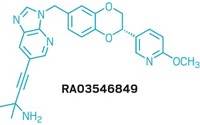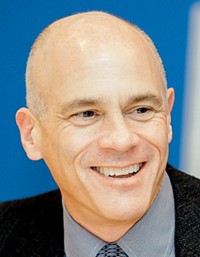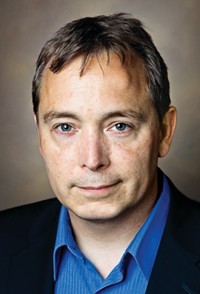Advertisement
Grab your lab coat. Let's get started
Welcome!
Welcome!
Create an account below to get 6 C&EN articles per month, receive newsletters and more - all free.
It seems this is your first time logging in online. Please enter the following information to continue.
As an ACS member you automatically get access to this site. All we need is few more details to create your reading experience.
Not you? Sign in with a different account.
Not you? Sign in with a different account.
ERROR 1
ERROR 1
ERROR 2
ERROR 2
ERROR 2
ERROR 2
ERROR 2
Password and Confirm password must match.
If you have an ACS member number, please enter it here so we can link this account to your membership. (optional)
ERROR 2
ACS values your privacy. By submitting your information, you are gaining access to C&EN and subscribing to our weekly newsletter. We use the information you provide to make your reading experience better, and we will never sell your data to third party members.
Pharmaceuticals
ACS Award In Industrial Chemistry
Sponsored by the ACS Division of Business Development & Management and the Society of Chemical Manufacturers & Affiliates
by Sophie L. Rovner
January 3, 2011
| A version of this story appeared in
Volume 89, Issue 1
John A. Lowe III, who launched the pharmaceutical consulting company JL3Pharma in Stonington, Conn., in 2009 after a 30-year career with Pfizer Global Research & Development, is being honored for his role in the discovery of a treatment for schizophrenia and for advances deriving from his work with the receptor for substance P (SP), a peptide involved in the immune response and in transmission of pain signals.
Born in 1951, Lowe earned a B.A. in chemistry and history from Williams College, in Massachusetts, in 1973 and a Ph.D. in synthetic organic chemistry from the University of California, Los Angeles, in 1977. After a postdoctoral fellowship at Stanford University, he joined Pfizer in 1979. By 2002, Lowe had become a senior research fellow at the company.
One of his major accomplishments at Pfizer was the discovery of a compound that could block the NK1 receptor for SP.
“Prior to Dr. Lowe’s discovery, only large peptidic analogs of SP itself had been shown to block the action of SP in vivo,” notes Rod MacKenzie, senior vice president and head of worldwide research at Pfizer. Because of their modest affinity for the NK1 receptor and poor oral bioavailability, those analogs had limited clinical potential, he adds. But when members of Pfizer’s new leads research team screened the company’s chemical library in the 1980s, they found a series of quinuclidines that strongly bound the NK1 receptor. By optimizing the structure, Lowe devised CP-96345, the first small, non-peptide-based molecule to effectively block SP from binding to the receptor.
“Dr. Lowe’s landmark papers in Science describing CP-96345 led to widespread efforts within the pharmaceutical industry to identify other small-molecule SP antagonists,” MacKenzie says. “These efforts have confirmed an important role for SP in asthma, post-chemotherapy emesis in cancer, depression, and circadian rhythm. The efficacy of SP antagonists in central nervous system-mediated disease, previously an untapped avenue for novel therapy, led to the discovery and successful marketing of the first SP antagonist for post-chemotherapy emesis,” Merck & Co.’s Emend (aprepitant).
Lowe also played a key role in the discovery of Geodon (ziprasidone) for the treatment of schizophrenia. The compound, which represented the culmination of more than 14 years of research at Pfizer, generated sales of $1 billion in 2009.
“Side effects such as motor impairment, weight gain, hyperlipidemia, and hyperglycemia limit patient compliance” with many of the drugs available to treat schizophrenia, MacKenzie points out. In patients who stop taking medication, disease symptoms return, resulting in the potential for injury to self or others, he adds. “Because ziprasidone offers powerful efficacy in the absence of many of these side effects, it represents a true advance in the treatment of this debilitating disease.”
Lowe’s honors include the 2007 ACS Heroes of Chemistry award and the 2005 Northeast Regional Industrial Innovation Award from ACS for his work with Geodon.
Lowe’s “unquenchable enthusiasm” for his work is readily apparent, notes California Institute of Technology chemistry professor Dennis A. Dougherty. “He displays the perfect balance of intellectual curiosity and appreciation for the practical consequences of the work.”
Lowe will present the award address before the ACS Division of Business Development & Management.






Join the conversation
Contact the reporter
Submit a Letter to the Editor for publication
Engage with us on Twitter